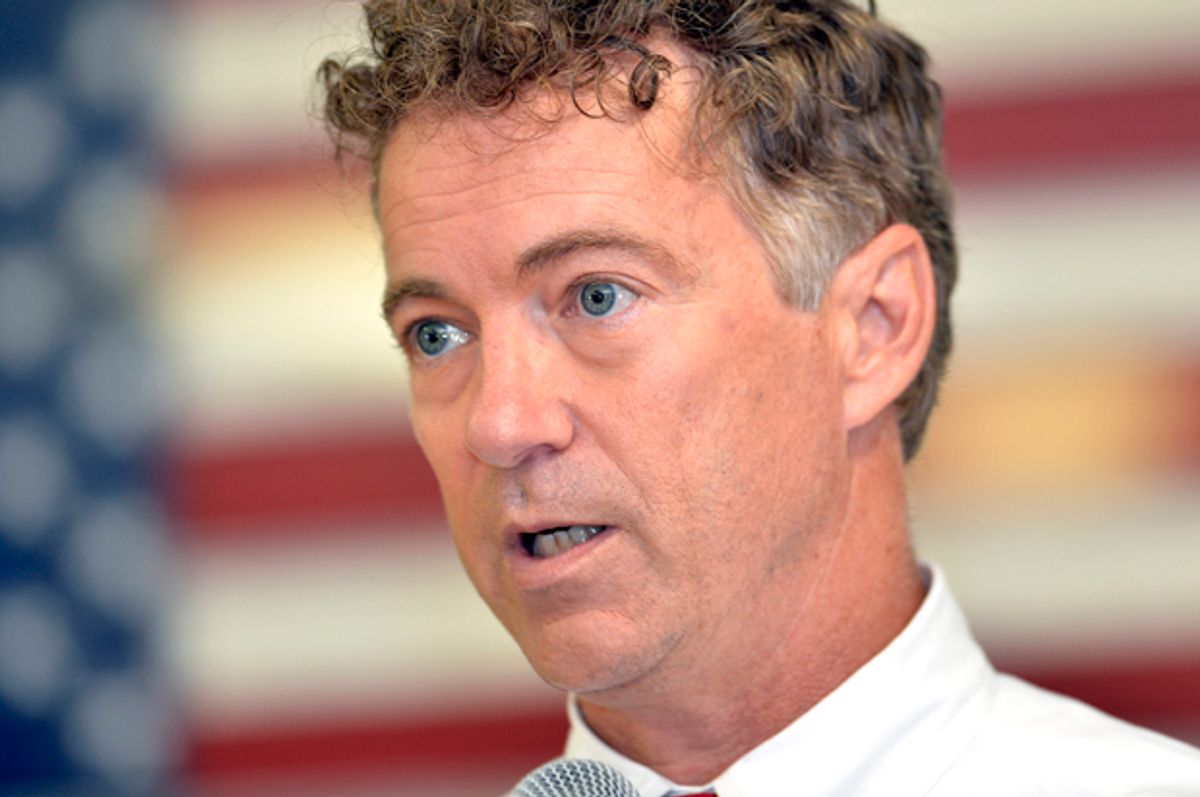With the new Congress sworn in and Donald Trump just a few weeks from his inauguration, we’re stepping into the first stages of what promises to be a hellacious fight over the future of the Affordable Care Act. Republicans in Congress have been promising to “repeal and replace” the law ever since President Obama signed it back in 2010, and Donald Trump campaigned on that same promise. Meanwhile, Democrats on Capitol Hill met with Obama on Wednesday to steel themselves for the coming attack on the ACA and figure out how to make Republicans suffer politically for undoing the health reform law.
Everyone will be at each other’s throats, and it’s going to get nasty. But there is one aspect of this looming fight that seems to draw broad, cross-ideological agreement: The Republican “repeal and delay” strategy for Obamacare reeks of political ass-covering and will only cause more problems.
Republicans from Trump on down have been promising for years to do away with the ACA as soon as they had the opportunity. They will very soon find themselves under pressure to follow through on that promise, but they also claim they don’t want to pull the rug out from under the many millions of people who gained coverage under the law. So instead they’ll vote to repeal the law, but delay the implementation of that repeal for several years while they figure out what comes next.
Democrats and liberals are obviously not down with this plan, which is to be expected. But “repeal and delay” is also meeting opposition from Republicans and conservative health wonks who, while fully on board with repeal, see a looming disaster in delay.
Sen. Rand Paul, R-Ky., wrote an op-ed this week for Rare that called for the immediate repeal and replacement of the Affordable Care Act, warning that “if Congress fails to vote on a replacement at the same time as repeal, the repealers risk assuming the blame for the continued unraveling of Obamacare.” Writing for Health Affairs, Joseph Antos and James Capretta of the American Enterprise Institute cautioned that delaying implementation of repeal “carries too much risk of unnecessary disruption to the existing insurance arrangements upon which many people are now relying to finance their health services, and ... is unlikely to produce a coherent reform of health care in the United States.”
The problem with these analyses is that there is still no Republican replacement for Obamacare, and there is not likely to be one any time soon. After many years of promising that a healthcare proposal was on the way, Republicans still have no idea what the replacement plan is. To wit, the “plan” Rand Paul lays out in his op-ed is a few vague ideas spiced up with liberal application of the word “freedom.”
But these warnings are absolutely correct about the dangers of the GOP’s current strategy. As it stands, Republicans do not have the votes to overcome a Democratic filibuster and fully repeal the Affordable Care Act. What they can do, however, is use budget reconciliation to eliminate the portions of the law that affect taxes or spending: the individual mandate, subsidies for purchasing insurance on the exchanges, payments to states for expanded Medicaid, and so on. Doing that would leave in place the minimum coverage requirements for insurers, as well as the requirement that insurers not discriminate based on pre-existing conditions.
That’s an untenable situation. Insurers would be forced to cover sick people and forced to offer generous plans, but there will be no incentive for healthy people to purchase insurance. To make that arithmetic work, insurers would have to jack up rates massively. They could also just bail out on Obamacare altogether, which they’re likely to do after 2017 anyway, given the political hostility towards the law from Republicans.
If you actually care about expanding coverage and making insurance affordable, then that’s something you want to avoid. But the early indications from the incoming Trump administration are that it doesn't much care about coherent healthcare policy, but remains deeply invested in continuing to use Obamacare to score political points. Trump himself tweeted as much on Wednesday morning, encouraging Republicans in Congress to let Obamacare “fall of its own weight” so the collapse can be blamed on Democrats.
The “repeal and delay” gambit accomplishes little beyond catalyzing that collapse, which may very well be the entire point. If Republicans in Congress go through with this strategy, they will do so despite warnings from across the ideological spectrum that they’ll be putting large numbers of people at risk.



Shares